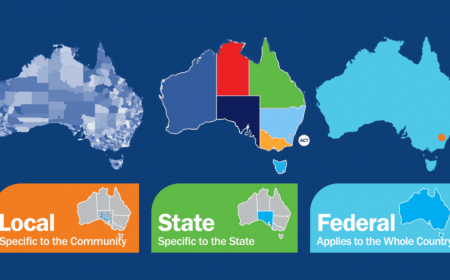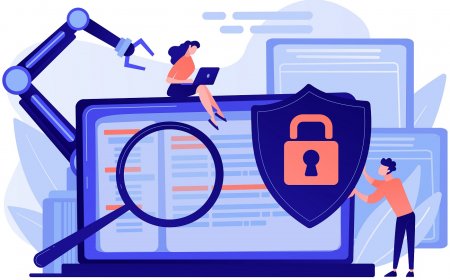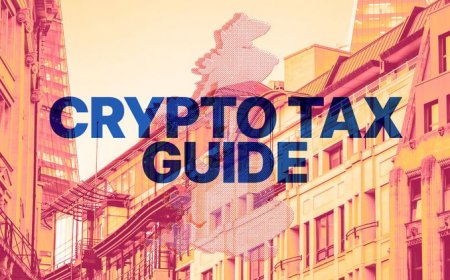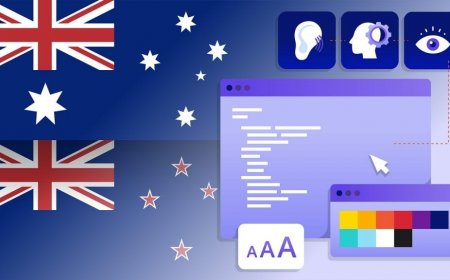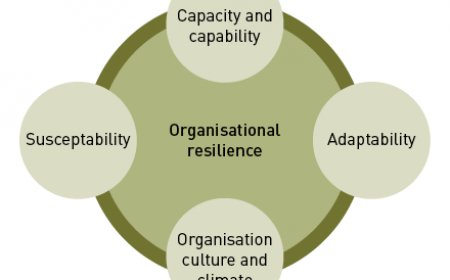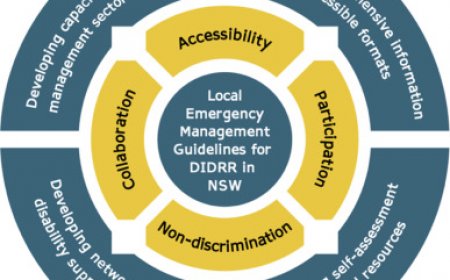US E-Learning Programs: Boost Your Career in 2025
Discover top US e-learning programs to boost your career by 2025. Explore platforms like Coursera, edX, and Udemy for certifications in tech, business, and more. Start your journey today!
In an era defined by rapid technological advancements and shifting workforce demands, e-learning programs have emerged as a transformative tool for career growth. By 2025, the demand for upskilling and reskilling will reach unprecedented levels, making US-based e-learning platforms a vital resource for professionals seeking to stay competitive. Whether you’re aiming to pivot into a new industry, climb the corporate ladder, or simply enhance your skill set, this guide will explore how e-learning can help you achieve your career goals.
Why E-Learning is the Future of Professional Development
The traditional model of education—attending physical classes at fixed times—is no longer feasible for many working professionals. Enter e-learning , a flexible, accessible, and cost-effective alternative that has revolutionized how people acquire new skills. Here’s why e-learning programs are indispensable for boosting your career in 2025:
1. Flexibility and Convenience
E-learning allows you to learn at your own pace, anytime and anywhere. This flexibility is particularly beneficial for individuals balancing work, family, and personal commitments. For instance, a full-time employee can dedicate evenings or weekends to completing modules without disrupting their daily routine.
2. Access to World-Class Education
Top universities, tech giants, and industry leaders now offer online courses through platforms like Coursera, edX, and LinkedIn Learning. These programs provide access to cutting-edge knowledge without geographical constraints. Whether you want to learn from Harvard professors or Google engineers, e-learning makes it possible.
3. Cost-Effectiveness
Compared to traditional degrees, e-learning programs are significantly more affordable. Many platforms also offer free trials, scholarships, or financial aid options, making high-quality education accessible to all. For example, earning a certification in data analytics through Coursera costs a fraction of what a university degree would.
4. Customizable Learning Paths
From short-term certifications to comprehensive degree programs, e-learning caters to diverse needs. You can choose courses tailored to your specific career aspirations, whether it’s mastering data analytics, learning project management, or diving into artificial intelligence. This level of customization ensures that every learner gets exactly what they need.
"E-learning empowers individuals to take control of their professional development, offering tools to thrive in a dynamic job market."
Top US E-Learning Platforms to Explore in 2025
With countless options available, selecting the right platform can be overwhelming. Below is a detailed exploration of the best US-based e-learning platforms, along with their standout features:
1. Coursera
Coursera partners with prestigious institutions like Stanford, Yale, and MIT, as well as leading companies like Google and IBM. It offers a wide range of courses, specializations, and even full-fledged degrees.
- Best For: Career-focused certifications, university-backed credentials.
- Popular Courses:
- Google IT Support Professional Certificate : Ideal for beginners looking to enter the tech field.
- Machine Learning by Andrew Ng : A cornerstone course for aspiring AI and ML professionals.
- Cost: Free audit option; paid certificates start at $39/month.
Why Choose Coursera?
Coursera stands out for its partnerships with top-tier universities and corporations. Its "Guided Projects" feature allows learners to gain hands-on experience in a virtual environment, making it perfect for practical skill-building.
2. edX
Founded by Harvard and MIT, edX provides rigorous academic content across various disciplines. Its MicroMasters and XSeries programs are designed to equip learners with advanced skills.
- Best For: Academic rigor, STEM-focused courses.
- Popular Courses:
- Introduction to Computer Science (Harvard) : Covers Python, algorithms, and web development.
- Supply Chain Management (MIT) : Prepares learners for leadership roles in logistics and operations.
- Cost: Free access to course materials; verified certificates start at $50–$300.
What Sets edX Apart?
edX emphasizes academic excellence and offers credit-eligible courses that can count toward formal degrees. Its open-source platform also fosters collaboration among educators worldwide.
3. Udemy
Udemy boasts a vast library of over 210,000 courses, covering everything from coding to creative arts. Its pay-per-course model makes it ideal for targeted learning.
- Best For: Skill-specific training, self-paced learning.
- Popular Courses:
- The Complete JavaScript Course : Perfect for beginners and intermediate developers.
- Python Bootcamp : Covers Python fundamentals and real-world applications.
- Cost: Individual courses range from $10–$200, often discounted during sales.
Why Udemy Stands Out
Udemy’s affordability and variety make it a go-to choice for quick skill acquisition. However, since anyone can create a course, quality may vary, so it’s important to read reviews before enrolling.
4. LinkedIn Learning
Formerly Lynda.com, LinkedIn Learning integrates seamlessly with your professional profile, allowing you to showcase completed courses directly on your resume.
- Best For: Soft skills, business acumen, and tech skills.
- Popular Courses:
- Leadership Foundations : Teaches essential leadership principles.
- Excel Essentials : Covers advanced Excel techniques for data analysis.
- Cost: Subscription-based ($29.99/month or $299.88/year).
Unique Selling Point
LinkedIn Learning’s integration with LinkedIn profiles makes it easy for recruiters to see your accomplishments. Additionally, its personalized course recommendations help you discover relevant content.
5. Codecademy
Codecademy specializes in programming and technical skills, offering interactive lessons that emphasize hands-on practice.
- Best For: Aspiring developers, tech enthusiasts.
- Popular Courses:
- Learn Python : Ideal for beginners interested in data science or automation.
- Web Development Path : Covers HTML, CSS, JavaScript, and backend technologies.
- Cost: Free basic plan; Pro membership starts at $19.99/month.
Why Codecademy Shines
Codecademy’s interactive coding exercises simulate real-world scenarios, helping learners build confidence and competence. Its gamified approach keeps motivation high.
6. Pluralsight
Pluralsight focuses on technology and software development, making it a favorite among IT professionals and engineers.
- Best For: Tech professionals, DevOps, cybersecurity.
- Popular Courses:
- AWS Certified Solutions Architect : Prepares learners for AWS certification exams.
- Kubernetes Fundamentals : Covers container orchestration and deployment strategies.
- Cost: $29/month or $299/year.
Key Advantage
Pluralsight offers skill assessments and IQ tests to help learners identify strengths and weaknesses. Its role-based learning paths ensure that every course aligns with your career goals.
How E-Learning Can Boost Your Career
E-learning programs aren’t just about acquiring theoretical knowledge—they’re designed to deliver tangible outcomes that translate into career advancement. Here’s how they can help:
1. Bridging Skill Gaps
Many industries face a growing mismatch between available jobs and qualified candidates. E-learning bridges this gap by equipping you with in-demand skills like data analysis, cloud computing, and digital marketing. For example, a marketer who learns SEO and Google Analytics can significantly enhance their value to employers.
2. Enhancing Employability
Certifications from reputable platforms signal to employers that you’re proactive about professional growth. For instance, earning a Google Data Analytics Certificate can make you a strong candidate for entry-level roles in data science.
3. Preparing for Leadership Roles
Courses in leadership, communication, and strategic thinking prepare you for managerial positions. Platforms like LinkedIn Learning offer specialized content to hone these soft skills, which are critical for career progression.
4. Facilitating Career Transitions
If you’re considering a career change, e-learning provides a low-risk way to explore new fields. For instance, someone transitioning from finance to tech might start with foundational coding courses before pursuing advanced certifications.
5. Staying Ahead of Industry Trends
Industries evolve rapidly, and staying relevant requires continuous learning. E-learning ensures you’re updated on emerging technologies and methodologies, such as AI, blockchain, and agile project management.
Key Skills to Focus on in 2025
To maximize the impact of your e-learning journey, focus on acquiring skills that align with future workforce trends. Here are some of the most in-demand areas:
1. Artificial Intelligence and Machine Learning
AI and ML are transforming industries like healthcare, finance, and retail. Courses in Python, TensorFlow, and neural networks will position you at the forefront of innovation. For example, understanding natural language processing (NLP) can open doors to roles in chatbot development or sentiment analysis.
2. Data Science and Analytics
As businesses rely increasingly on data-driven decision-making, proficiency in tools like SQL, Tableau, and R becomes critical. Learning statistical modeling and predictive analytics can make you indispensable in any organization.
3. Cloud Computing
Platforms like AWS, Microsoft Azure, and Google Cloud dominate the tech landscape. Certifications in cloud architecture or DevOps can open lucrative career paths. For instance, becoming an AWS Certified Solutions Architect can lead to six-figure salaries.
4. Cybersecurity
With cyber threats on the rise, organizations need skilled professionals to protect sensitive information. Courses in ethical hacking, network security, and risk management are highly valuable. The demand for cybersecurity experts is projected to grow exponentially by 2025.
5. Digital Marketing
Social media, SEO, and content marketing continue to shape consumer behavior. Mastering these areas can lead to opportunities in branding, advertising, and customer engagement. Understanding analytics tools like Google Ads and Facebook Insights is crucial for success.
How to Choose the Right E-Learning Program
Selecting the right program depends on several factors, including your career stage, budget, and learning preferences. Follow these steps to make an informed decision:
Step 1: Define Your Goals
Identify what you want to achieve—whether it’s landing a promotion, switching careers, or gaining foundational knowledge. Clear objectives will guide your choice of courses.
Step 2: Research Course Content
Look for detailed syllabi and reviews to ensure the course covers the topics you need. Check if the curriculum includes practical exercises or real-world projects. For example, a good data science course should include capstone projects involving real datasets.
Step 3: Evaluate Instructor Expertise
Choose programs taught by experienced instructors with proven track records in their respective fields. Platforms like Coursera and edX often feature courses led by renowned professors or industry experts.
Step 4: Consider Accreditation
For formal qualifications, prioritize accredited programs. Degrees or certifications from recognized institutions carry more weight with employers. For instance, a MicroMasters from MIT holds significant prestige.
Step 5: Assess Time Commitment
Some courses require intensive study over weeks or months, while others are shorter and more flexible. Align the program duration with your schedule. If you’re juggling a full-time job, opt for self-paced courses.
Success Stories: Real-Life Impact of E-Learning
Case Study 1: Transitioning to Tech
Sarah, a former teacher, enrolled in Codecademy’s Full-Stack Developer Program after deciding to pursue a career in tech. Within six months, she built a portfolio of web applications and secured an internship at a startup. Today, she works as a junior developer earning $75,000 annually.
Case Study 2: Climbing the Corporate Ladder
John, a mid-level manager, completed a Leadership Foundations course on LinkedIn Learning. He applied his newfound skills to spearhead a successful team restructuring initiative, earning him a promotion to senior management.
Case Study 3: Entrepreneurial Growth
Maria, a small business owner, took a digital marketing course on Udemy to improve her online presence. Her efforts resulted in a 40% increase in website traffic and a significant boost in sales.
Tips for Maximizing Your E-Learning Experience
To get the most out of your e-learning journey, follow these actionable tips:
1. Set SMART Goals
Specific, Measurable, Achievable, Relevant, and Time-bound goals keep you focused and motivated. For example, aim to complete three modules per week or finish a certification within three months.
2. Create a Dedicated Study Space
Minimize distractions by setting up a quiet, organized workspace. Equip it with essentials like a laptop, notebook, and reliable internet connection.
3. Leverage Community Resources
Join discussion forums, study groups, or networking events hosted by your e-learning platform. Collaborating with peers enhances understanding and fosters accountability.
4. Apply What You Learn
Practice is key to retention. Build projects, participate in hackathons, or volunteer for tasks that allow you to apply newly acquired skills in real-world scenarios.
5. Track Your Progress
Use tools like spreadsheets or productivity apps to monitor your achievements. Celebrate milestones to maintain momentum.
Comparison Table: Top E-Learning Platforms
Review: Verdict on US E-Learning Programs
US e-learning programs represent a golden opportunity to accelerate your career growth. With unparalleled flexibility, affordability, and access to world-class content, these platforms empower individuals to adapt to the ever-changing demands of the modern workforce. Whether you’re a beginner or an experienced professional, there’s something for everyone.
Conclusion
By leveraging US e-learning programs , you can unlock endless possibilities for professional development. Whether you’re looking to acquire technical expertise, polish your leadership abilities, or explore entirely new fields, e-learning offers the tools and resources to succeed. Start planning today to harness the power of e-learning and secure a brighter future by 2025.
Frequently Asked Questions (FAQs)
1. Are e-learning certifications recognized by employers?
Yes, certifications from reputable platforms like Coursera, edX, and LinkedIn Learning are widely accepted by employers.
2. How much time does it take to complete an e-learning course?
Duration varies depending on the program, ranging from a few hours to several months.
3. Can I learn multiple skills simultaneously?
While possible, focusing on one skill at a time ensures deeper understanding and better retention.
4. Do e-learning platforms offer financial aid?
Many platforms, including Coursera and edX, provide scholarships or financial assistance for eligible candidates.
5. Is e-learning suitable for beginners?
Absolutely! Most platforms offer beginner-friendly courses designed to introduce fundamental concepts.
6. What equipment do I need for e-learning?
A reliable computer, stable internet connection, and note-taking tools are sufficient for most courses.
7. How do I stay motivated during self-paced learning?
Set clear goals, join communities, and reward yourself for completing milestones to stay motivated.
8. Can I earn a degree through e-learning?
Yes, platforms like Coursera and edX offer accredited bachelor’s and master’s degrees.
9. Are there any prerequisites for advanced courses?
Some advanced courses require prior knowledge or experience, so check the prerequisites before enrolling.
10. How do I showcase my e-learning achievements?
Add certifications to your resume, LinkedIn profile, or portfolio to highlight your accomplishments.
What's Your Reaction?
 Like
0
Like
0
 Dislike
0
Dislike
0
 Love
0
Love
0
 Funny
0
Funny
0
 Angry
0
Angry
0
 Sad
0
Sad
0
 Wow
0
Wow
0



